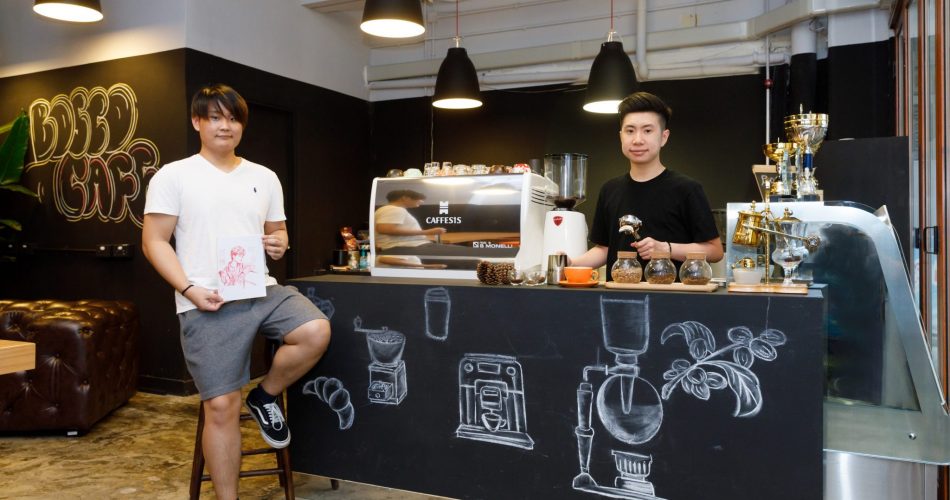“Teaching students in accordance with their aptitude” is widely agreed upon. Yet, in Hong Kong, a city that prioritizes academic performance, grades can be a major factor in defining one’s potential. The problem is, not everyone is academically inclined, and it is almost impossible for anyone to remain interested in something that he/she can hardly master. Walking into the campus of Salesians of Don Bosco Ng Siu Mui Secondary School, the first thing that caught my eye was a pottery room where students can unleash their creativity to handmake different pottery items including the coffee mugs for guests. Principal Li Kin Man said, “These mugs are like my students, each is unique but equally valuable.” The school’s vision is to respect students as individuals and help them manifest interests and strengths. Students who may not excel in academics can still find their own running track towards a bright future.
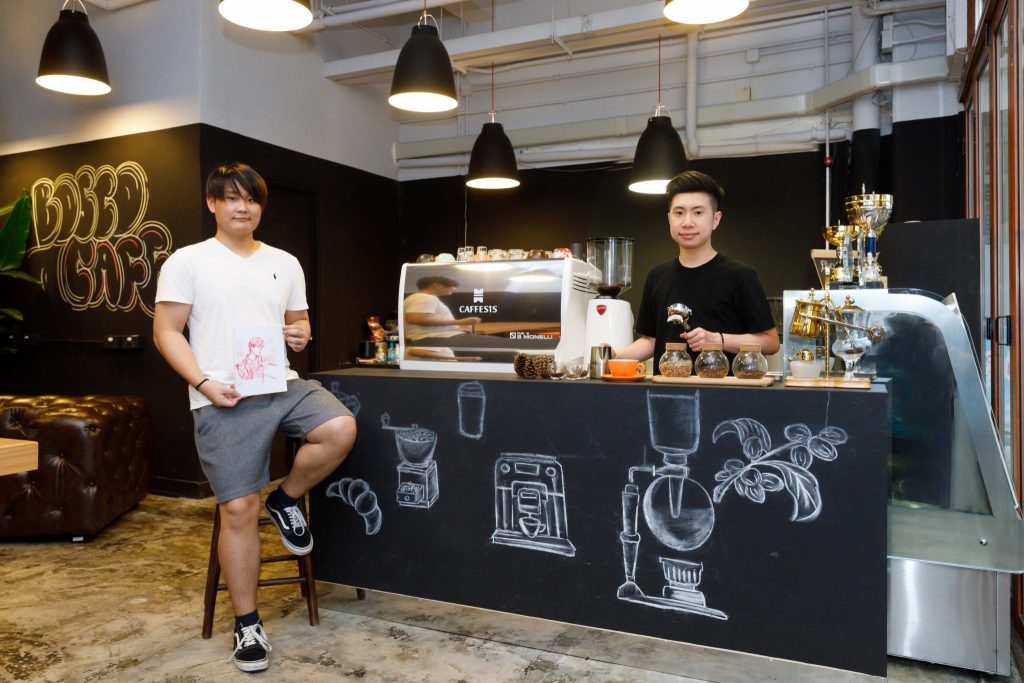
Each cup of coffee tastes different
Next to the pottery room is a cozy café – where 20-year-old Daniel Wong discovered his passion and his career goal.
According to Daniel himself, he was unmotivated to go to school until Form Four when he found his passion – coffee-making – when participating in the mandatory Other Learning Experience (OLE) programme. The school offered a variety of OLE classes, such as art, computer, music, coffee-making and more. He was already taking Information and Communications Technology (ICT) as an elective and thus chose coffee-making, which is something different, to expand his horizons via OLE. He then became so passionate that he decided to make a career out of it.
The OLE coffee-making class was held once a week, spanning over one year. Daniel learned basic skills such as distinguishing coffee beans from different countries of origin, the handling and brewing of different kinds of coffee. The teacher also shared with students interesting experiences and stories of the industry. Started with a casual mindset in testing the waters, Daniel became much absorbed to coffee-making and took pleasure in devoting most of his time in practising latte art. “I went through numerous failures in the beginning but never gave up. Sometimes, it would take me three to four hours to practise but still failed to achieve the pattern in my mind. It frustrated me a lot when the coffee did not taste right, as I would feel sorry for the time and coffee beans wasted. My very patient teacher would stay behind to guide me. Coffee-making fascinates me as there are countless variations. My teacher also told me that apart from brewing coffee, a barista gets to interact with people from all walks of life and thus has his/her horizons broadened. During the summer holiday, I was so driven by my passion for coffee and fearlessly walked into a coffee shop asking if there was any summer job opening, and I was hired! I guess the skills I acquired in the OLE programme worked as an advantage for me. The work experience reassured my thought of pursuing my career as a barista and here I am – a full-time barista after graduation.”
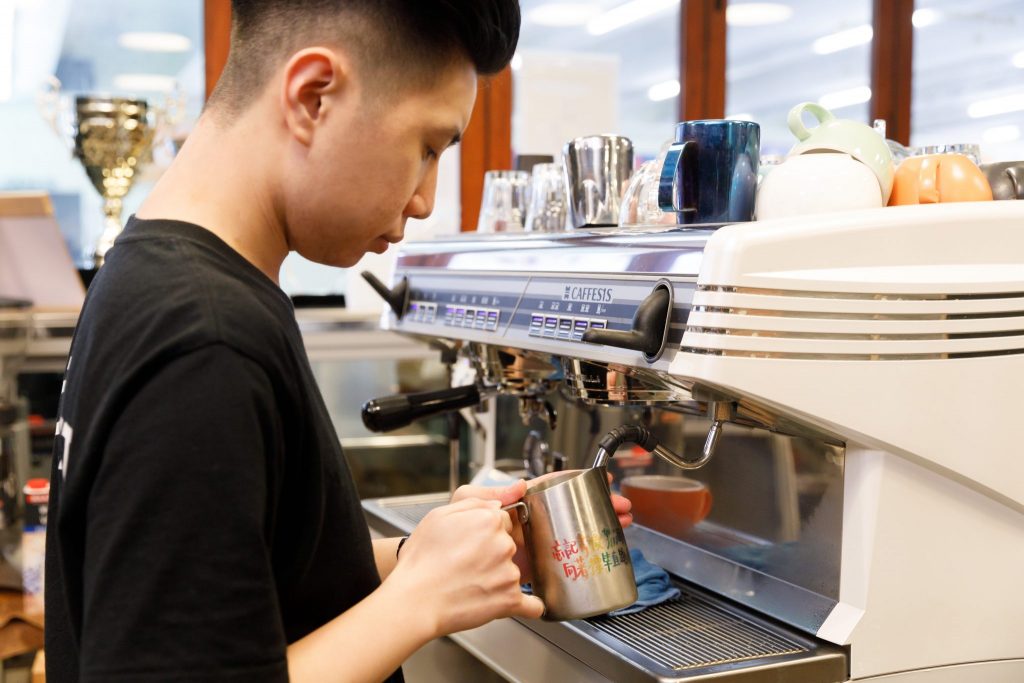
It took Daniel about a week to master latte art. He explained, “Even the most advanced designs are just combinations of basic patterns. As long as you can master the basic patterns such as the heart and various shapes of leaves, you should be able to achieve most designs without difficulty – by mixing, matching and fine-tuning the small details. I would search on the Internet and take inspiration from other people’s latte art creations, practise and make perfect via trial and error, and create my own work.”
Daniel told us about how life became totally different after he found his passion, “It motivates me to keep going no matter how hard it gets. I do not feel struck by failures, even they happen a lot. School used to be boring to me – I skipped classes and fell asleep in those that I attended. I wondered every day why I had to waste my time on things that were useless and unenjoyable. After stepping into the world of coffee-making, I started to love going to school. My attendance improved though I still got bored in class and was occasionally scolded by teachers. Nothing matters as long as I get to do what I enjoy after class, that is, to practise latte art in the school café. In fact, I ‘forced’ a lot of teachers to taste my coffee in their free time.” In 2017, Daniel was crowned Champion in the Hong Kong Inter-school Latte Art Competition, which gave him further confirmation to continue down this path. Now, his eyes sparkle when he talks about coffee, “Every cup of coffee tastes different. The flavours vary according to the type and origin of coffee beans, as well as the skills of the barista and how he/she would bring out the scent of the beans. Water temperature, viscosity and proportions all come into play when it comes to the taste of coffee.”

Daniel is very lucky to have gained support from both the school and his family. If he could go back in time, he would like to tell his secondary school self the following: “Be brave and open yourself to options. When you find your passion, devote yourself and work hard for it. Don’t quit over obstacles.” With a down-to-earth mentality, Daniel is determined to stay in the industry to keep learning and enriching himself. His goal is to save enough money to open his own café in the future, so that he can share his passion with others, meet people and enjoy an exchange of stories and life experiences with his customers. Loving what he does and doing what he loves – an enviable blessing that he got to capture by following his heart.
A learning paradise for arts students
Among the many exhibits Inside the art gallery in Salesians of Don Bosco Ng Siu Mui Secondary School is a wooden board featuring a meticulous sketch drawing. The board itself was the table top of a classroom desk. Steve Tai, a reputable art enthusiast in the school, saw this unused desk in the Visual Arts room and decided to “revive” it by drawing on it. Instead of punishing Steve for vandalism, the school celebrated his creativity by disassembling the table top and displaying it in the art gallery.
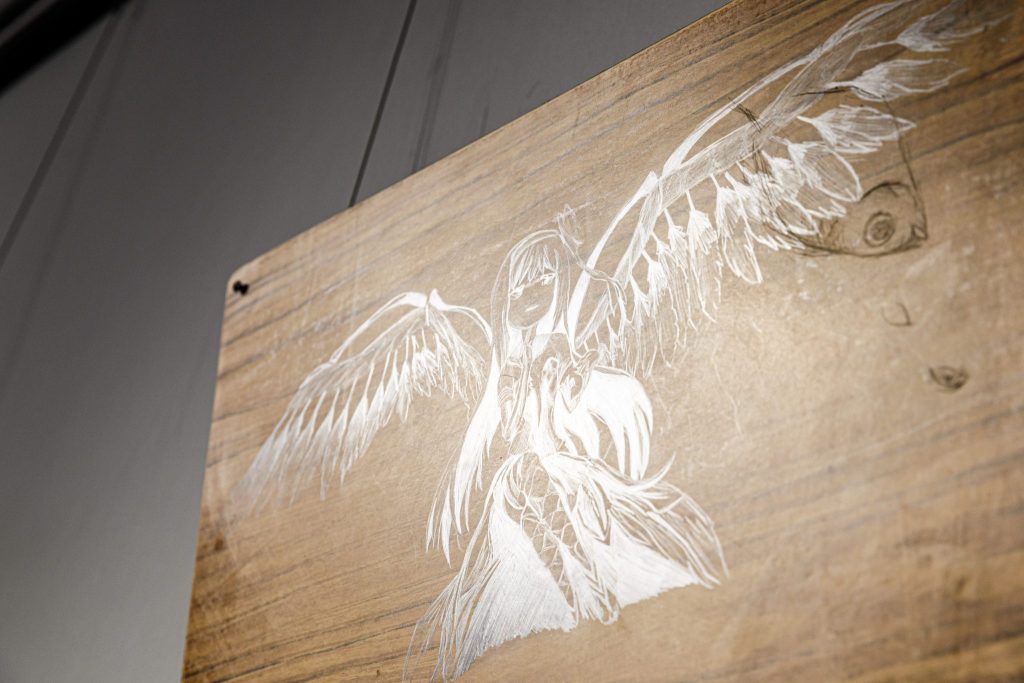
Steve’s passion for Visual Arts has long been there since childhood, albeit not receiving official training until Form Four. Now, he is a student at the Hong Kong Design Institute, majoring in Creative Media. He started his secondary school years in another school, in which he was asked to repeat Form One because of unsatisfactory grades. He then transferred to Salesians of Don Bosco Ng Siu Mui Secondary School to repeat Form One again. Influenced by traditional dogmas and existing standards of the education system, Steve was kind of turning away from his passion for arts in the beginning. Even when he started studying Visual Arts in Form Four, his engagement and ability were far from that of today. Encouragement and support from teachers, however, boosted his confidence to pursue his dream. Steve said, “Teachers here care a lot for the students to an extent that they are willing to spend extra hours to guide us after class. I made around 200 paintings in Form Four and was frequently consulting my teacher and asking for his comments so that I could improve. I am also learning computer drawing and 3D model-making from my current Creative Media programme. Many say that the future is bleak for arts students. I used to worry about whether I could make a living with arts, but now I understand that we ought to create our own future instead of praying for luck. My teacher here encouraged me to reach for the stars even if the possibility for success is low. Maybe I am that one in a million! Even if I fail, all I need is to stand up again. No one knows what success is until he/she reaches it. If we are willing to try and put in our due effort and keep doing what we do best, we may just stand out from the crowd and earn that crown.”
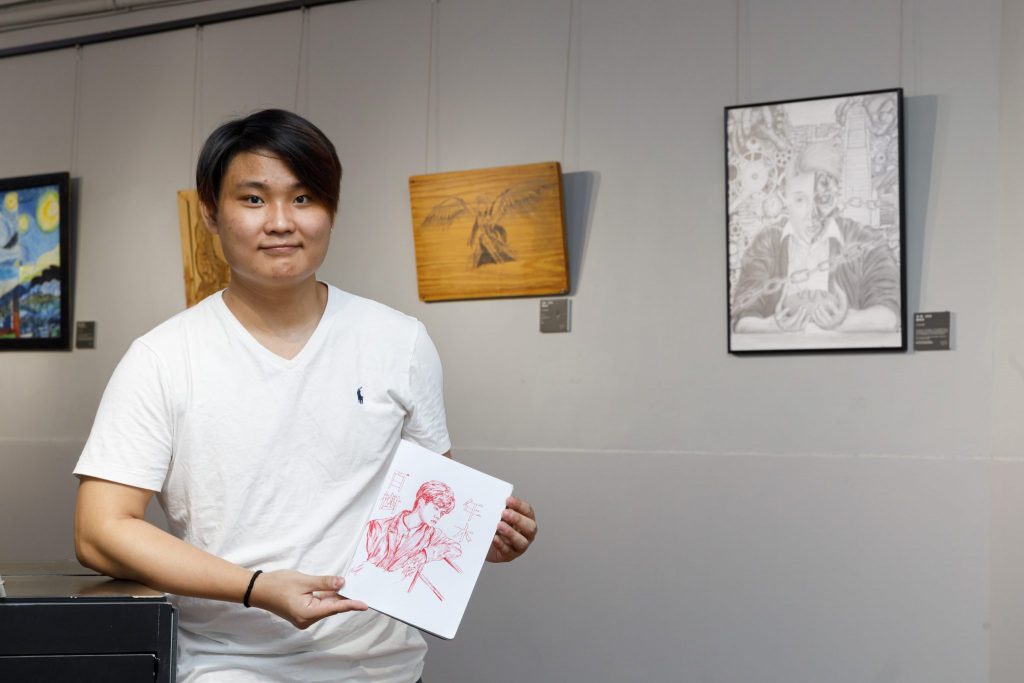
The definition of arts is different for everyone. For Steve, arts must be meaningful and illustrative, gracefully narrating a story, a concept or a belief. His works, for instance, are characterized by complementing each painting with in-depth text that records his feelings and the meaning behind his work. Many of his works were inspired by Cantonese pop songs. Steve shared, “I love Cantonese pop songs and I am familiar with almost every one of them launched in the past decade. Cantonpops reflect the unique culture of Hong Kong, and I feel obligated to inherit and promote such culture. The lyrics of Cantonpops are simple yet powerful. These intangible treasures are worthy of being passed on to the next generation. I think the combination of images, lyrics and songs narrates an alternative version of history that records the most noteworthy social issues and events in our zeitgeist.”
If Steve was given the opportunity to time-travel back to Form One, he would tell his younger self to start painting earlier. His old school did not put much emphasis on art training. His talents did not flourish until he was admitted to Salesians of Don Bosco Ng Siu Mui Secondary School, a school that provides students with abundant resources to explore their artistic side. “The school shows its full support by providing students with an environment that allows and encourages us to learn, experiment, excel and enjoy creative production. It provides not only the right tools and materials but also unwavering support from teachers who are always here to help students realize their artistic potential. This school is a dream place for arts students.”
During the interviews, both students mentioned multiple times about how the support from teachers had helped them realize their dreams. It led me to the next question: How was such support manifested? How do we make our children recognize and appreciate our support? According to the two interviewees, besides verbal encouragement and appreciation, “companionship” plays a key part. At one point, Steve was working really hard on a sizeable piece for his school-based assessment and had to stay in school until six to seven o’clock every day. His art teacher would stay behind after school to accompany him and walk with him through the journey. As for Daniel, countless after-school practice sessions of brewing coffee were often guided by his teachers. When it comes to detecting affections and intentions, young people are usually extremely sensitive and their judgements could be awfully accurate. If they are treated with kind intentions, they will immediately sense it. If they feel respected and worthy, they will do their best to live up to these expectations and strive to do better. Instead of forcing our views on them, young people are better-off with adults granting them the space to explore freely, and be there to accompany and support.

